Post
A catch
Save a catch to start your fishing logbook. You will be able to to share it with the community if yo want!
A fishing trip
Post an ad to go fishing with other fishermen
Save a catch to start your fishing logbook. You will be able to to share it with the community if yo want!
Post an ad to go fishing with other fishermen
Share a thought, a question with the community
My favorite cities
×Join our 17 fishermen in North-Arlington in Bergen. The fishing forecast is currently 2.5. The most caught fishes here are the westlope cutthroat trout, the muskellunge, the lake trout and the coho salmon. Come try the most famous fishing techniques like the how to catch smelt with square net?, trolling for mackerel, dive fishing or angling - using natural bait.
Our fishing forecast of North Arlington indicates the best time to go fishing in this city.
The Westlope cutthroat trout
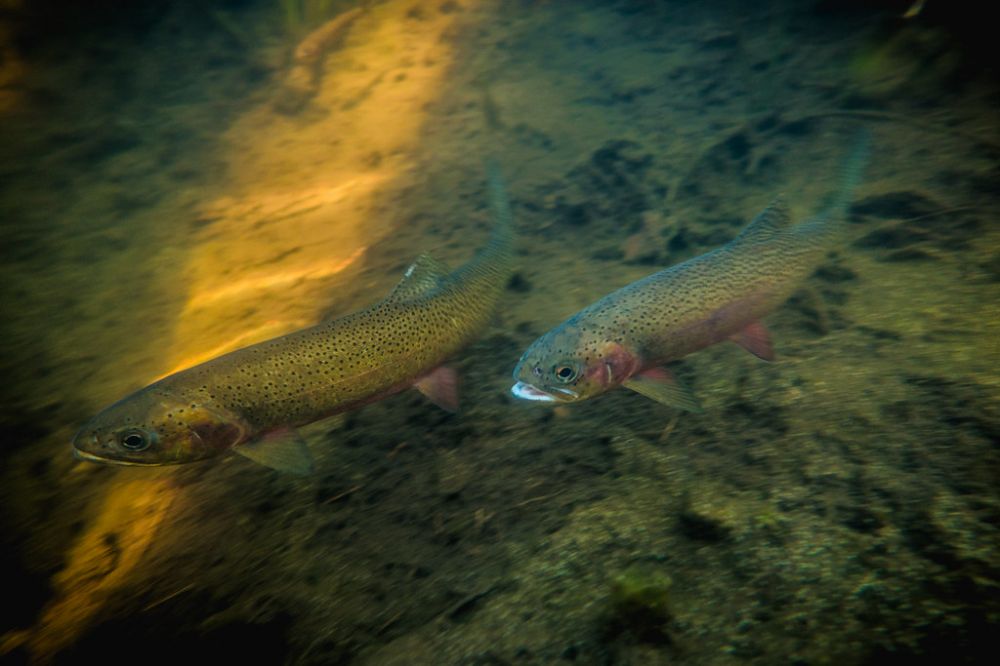
The Westlope cutthroat trout belongs to the Salmonidae Family. The average length of the fish is about 30 cm and rarely exceeds 46 cm. It has an average life span of 2 to 5 years. They breed in the spring. Fishing is prohibited because this fish is endangered. The fish has teeth under the tongue, on the roof of the mouth and on the front of the mouth. The gorge cutting the western slope is common in the waters of lakes and rivers upstream. The skin has small dark freckle-like spots, grouped towards the tail, and is mainly orange in color. They are distinguished from rainbow trout by the red, pink or orange markings under the jaw.
The Westlope cutthroat trout is a famous fish you can catch in North Arlington.The Muskellunge
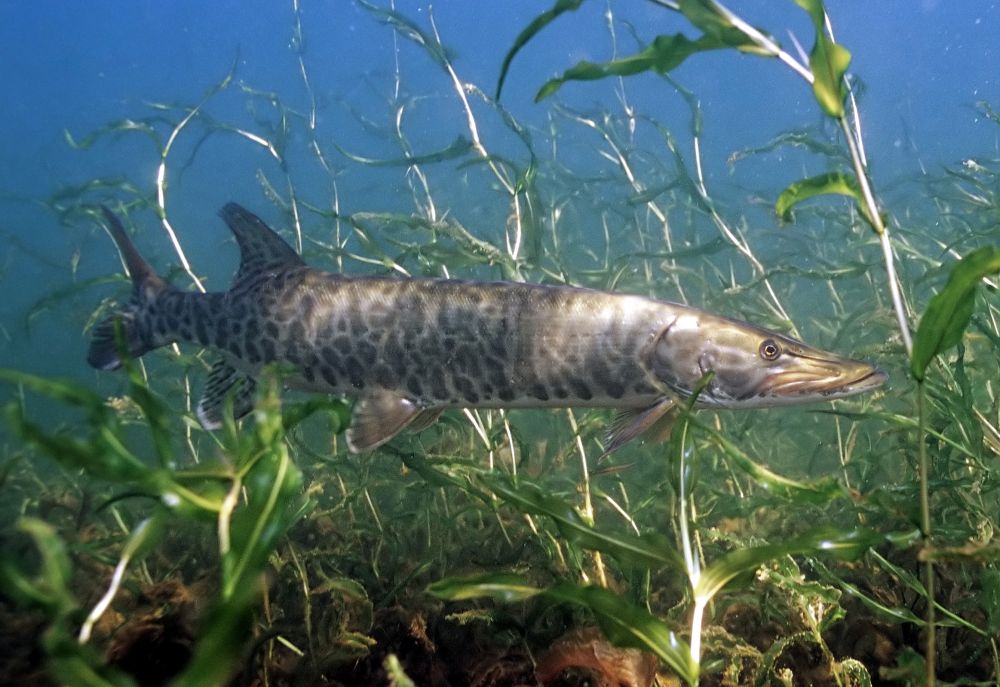
The Muskellunge belongs to Esocidae family. It can reach 150 cm of length for 30 kg. It has a lifespan of 30 years. They spawn in springs. It can be fished all year round. The sides vary from greenish to brownish to silvery, usually with dark marks, but marks may be absent. The white or cream belly often has brownish or greyish spots. The dorsal and anal fins, located far away on the body, range from greenish to brownish to blood-red and generally have dark marks. The duckbill jaws have long, pointed teeth: the roof of the mouth has shorter, curved tooth pads. The cheek cover and gills have scales on the upper half only. The underside of the jaw has sensory pores, the numbers varying from 12 to 20, but the number is generally 15 to 18.
The Muskellunge is a famous fish you can catch in North Arlington.The Lake trout
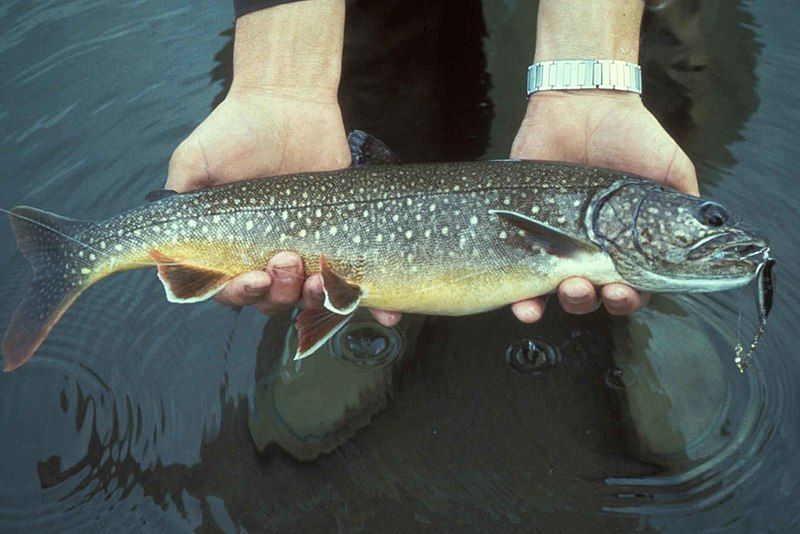
The Lake trout belongs to the Salmonidae family. The average size is 68 cm for 3 kg. It has a lifespan of 12 years. It spawns in fall. It can be fished all year round. Lake trout have a deeply forked caudal fin and a slate-grey to greenish grey body with a lighter underside. Cream to yellow spots are usually present on the head, body, dorsal and caudal fins. Lower fins are orange-red with a narrow white edge. Younger fish will have between seven and twelve marks of broken parr along their sides. The species supports nine to twelve gills and, unlike its cousin the brook trout (Salvelinus fontinalis), lake trout do not have a black band on the front edge of their anal and pelvic fins. Breeding males develop a dark lateral band on their sides.
The Lake trout is a famous fish you can catch in North Arlington.The Coho Salmon
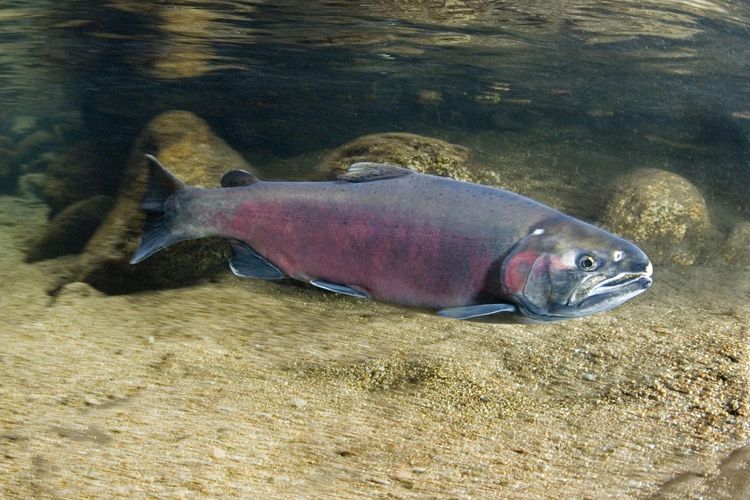
The Coho Salmon belongs to the Salmonidae family. it measures about 71 cm by 5 kg in general. They have a life expectancy of 5 years. They spawn from September to January. They can be captured from July to October. During their ocean phase, coho salmon have silvery sides and a dark blue back. After entering fresh water, they develop bright red flanks, blue-green heads and backs, a dark belly and dark spots on the back. Sexually mature fish develop a pale pink or pink shade along the belly, and males may have a slight arch on the back. Mature adults have a pronounced red skin color with a darker back.
The Coho Salmon is a famous fish you can catch in North Arlington.The Brook Trout
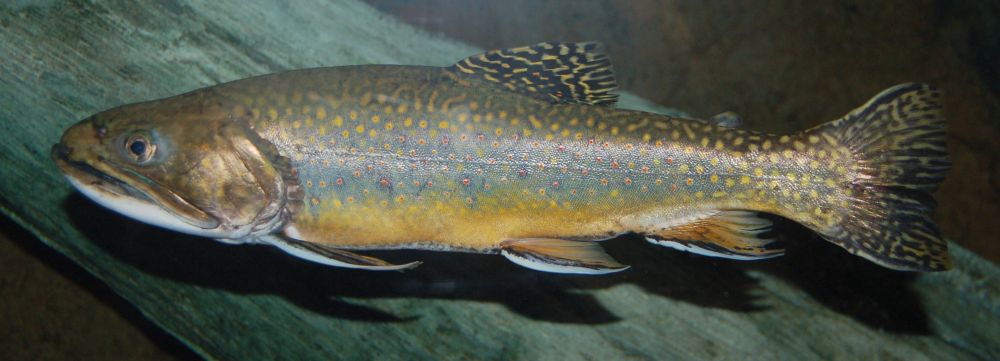
The Brook Trout belongs to the Salmonidae family. The average size of the brook trout is 50 cm and the weight only exceptionally exceeds 7 kg. It has a longevity of 5 years. It reproduces in autumn. It is fished from April to September. Its body is fusiform, laterally compressed, and slender. Its general shape is reminiscent of trout, although a little more massive. The body is arched at the dorsal fin. It has a small but stocky head with a widely split mouth, including teeth on the jaws, tongue and palate. On the body, the scales are small and thin. The Brook trout have two dorsal fins, one of which is characteristic of Salmonids. The color is distributed differently over the body: the back is rather dark brown, with lighter mottling and covered with a network of very close yellow spots. The sides have a beautiful light brown color, sometimes olive green. They also have yellow spots, less tightened. Round and red spots can also be seen on the sides. The color of the belly varies from white to pink, but can be pale yellow to dark red. It all depends on the environment in which it operates. Populations living near the bottom are paler than those living in open water, rather colorful. In males, the livery becomes bright orange during the breeding season. Finally, the pectoral, pelvic and anal fins are bordered by a white border, specific to the genus Salvelinus, highlighted here by a black band.
The Brook Trout is a famous fish you can catch in North Arlington.Our fishing forecast of North Arlington indicates the best time to go fishing in this city.
Our fishing forecast of North Arlington indicates the best time to go fishing in this city.
Our fishing forecast of North Arlington indicates the best time to go fishing in this city.
